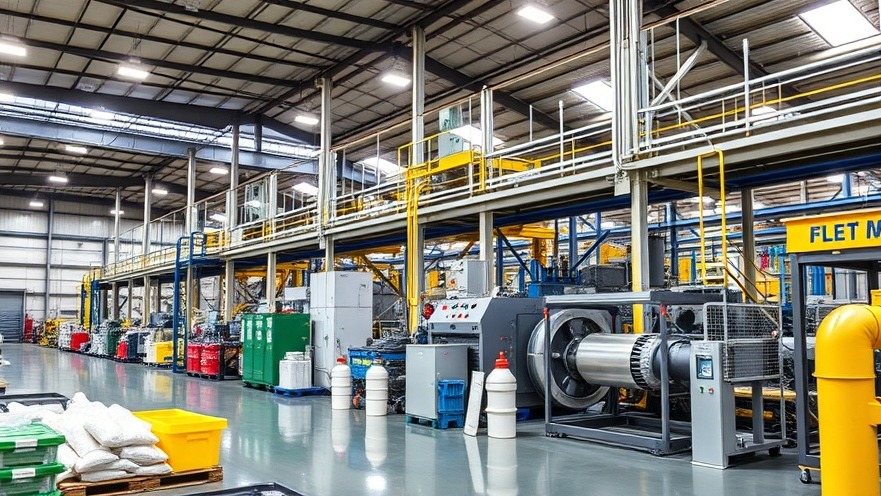
Exxon Delays Construction of $10 Billion Plastics Plant in Texas
Exxon Mobil has announced a postponement of its plans for a significant plastics production plant on the Gulf Coast, stirring up discussions about economic prospects and environmental implications in the region. Initially scheduled to break ground in 2026, the $10 billion facility would have been situated in Calhoun County, with the goal of producing up to 3 million tons of polyethylene pellets each year, primarily for export to Asia.
Market Conditions and Economic Viability
The decision comes on the heels of a court ruling that invalidated a tax break agreement between Exxon and the Calhoun County Independent School District. Given the company's recently reported profits of $34 billion in 2024, the move to delay appears to be more about market dynamics than fiscal distress. "We’re confident in our growth strategy," Exxon stated, asserting their continued interest in the project once conditions improve.
Economic forecasts suggest a robust demand for plastics in the coming years, with some estimates projecting a 64% growth rate in polyethylene markets between 2024 and 2034. Despite these optimistic predictions, Exxon’s cautious approach underscores the need for solid profitability metrics before committing substantial investments.
Environmental Advocacy and Community Impact
The delay is not wholly independent of the local resistance spirited by activists like Diane Wilson, who successfully challenged the school district's initial approval of tax incentives for the plant. Wilson’s advocacy lies at the intersection of environmental health and community welfare, highlighting how such developments can pose risks to local ecosystems.
“If there wasn’t a big fight,” Wilson posited, “if everyone had just rolled over for them, there would be no delay.” Her perspective initiates a vital reminder of the power local voices can have in influencing corporate decisions, especially in regions like Calhoun County, where economic development often collides with environmental sustainability.
Insights on Future Developments
With Exxon pausing the project temporarily, what does this mean for Calhoun County and the wider Gulf region? The plastics industry has been at the center of heated debates regarding environmental impact versus economic growth. As the 2025 Texas elections approach, will candidates address the delicate balance of economic development against ecological responsibility?
Industry leaders and local politicians may need to reassess their strategies as community engagement becomes increasingly crucial. Residents are looking for representatives who can advocate for transparency and viability without jeopardizing the local environment.
Broader Implications for Texas and Beyond
The Texas economy stands significantly influenced by its ties to the oil and gas industry, with Exxon being one of the most prominent players. As the debate over fossil fuels intensifies amid rising calls for sustainable practices, the direction Exxon and similar companies take in the post-pandemic economic landscape is essential to monitor.
Policymakers and corporate leaders alike must navigate these challenges carefully, aiming for a sustainable future that honors both economic growth and environmental stewardship. Initiatives that bolster community involvement could be the key to aligning corporate objectives with public interest.
Conclusion: Calls for Engagement and Action
For Texas residents, the unfolding narrative surrounding Exxon’s plastics plant should prompt a greater inquiry into how community voices factor into significant industrial projects. With their representations at stake, citizens should engage with local governance and demand transparency in future negotiations.
As environmental awareness continues to shape the political landscape in Texas, it may be time for communities to boldly assert their needs and expectations. The interplay between community advocacy and corporate interests will only grow in importance.”
 Add Element
Add Element  Add Row
Add Row 



Write A Comment